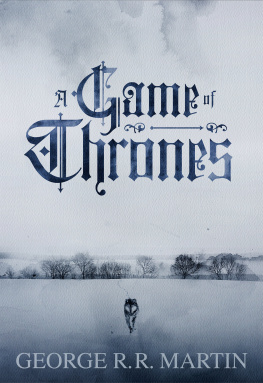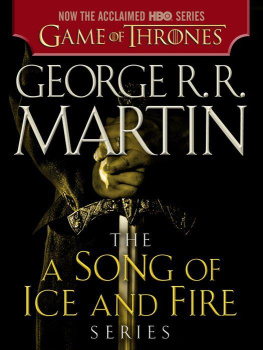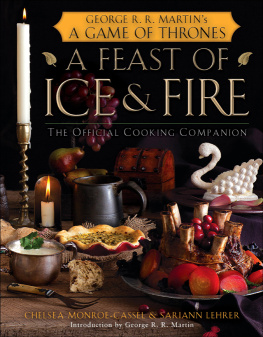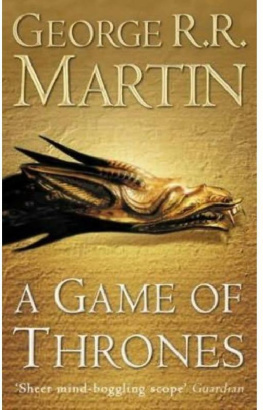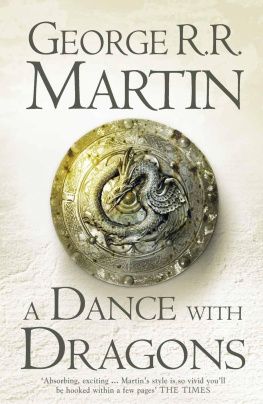

MORE SMART POP TITLES
The Anthology at the End of the Universe
Ardeur
The Girl Who Was on Fire
Halo Effect
King Kong Is Back!
Navigating the Golden Compass
The Psychology of Dexter
The Psychology of Harry Potter
Revisiting Narnia
Through the Wardrobe
Star Wars on Trial
The Science of Dune
A Taste of True Blood
War of the Worlds
OTHER ANTHOLOGIES EDITED BY JAMES LOWDER
Astounding Hero Tales
The Best of All Flesh
The Book of All Flesh
The Book of Final Flesh
The Book of More Flesh
Curse of the Full Moon
The Doom of Camelot
Family Games: The 100 Best
Hobby Games: The 100 Best
Triumph of The Walking Dead
Legends of the Pendragon
Path of the Bold
Path of the Just
Realms of Infamy
Realms of Valor
Worlds of Their Own
Also available from Smart Pop Books

THIS PUBLICATION IS UNOFFICIAL AND UNAUTHORIZED. IT HAS NOT BEEN PREPARED, APPROVED, AUTHORIZED, LICENSED, OR ENDORSED BY ANY ENTITY THAT CREATED OR PRODUCED THE WELL-KNOWN BOOK SERIES A SONG OF ICE AND FIRE OR THE TELEVISION SHOW GAME OF THRONES . |
Beyond the Wall: Exploring George R.R. Martins A Song of Ice and Fire, From A Game of Thrones to A Dance with Dragons 2012 by James Lowder
All rights reserved. No part of this book may be used or reproduced in any manner whatsoever without written permission except in the case of brief quotations embodied in critical articles or reviews.

BenBella Books, Inc.
10300 N. Central Expressway, Suite 400
Dallas, TX 75231
www.benbellabooks.com
Send feedback to
10 9 8 7 6 5 4 3 2 1
Library of Congress Cataloging-in-Publication Data is available for this title.
978-1-9366-6175-6
Copyediting by margaret Wickham
Proofreading by Chris Gage and Michael Fedison
Cover design by Faceout Studio
Text design and composition by Neuwirth & Associates, Inc.
Distributed by Perseus Distribution
(www.perseusdistribution.com)
To place orders through Perseus Distribution:
Tel: 800-343-4499
Fax: 800-351-5073
E-mail:
Significant discounts for bulk sales are available. Please contact Glenn Yeffeth at or (214) 750-3628. |
COPYRIGHT ACKNOWLEDGMENTS
Foreword: Stories for the Nights to Come 2012 by R.A. Salvatore
The Palace of Love, the Palace of Sorrow 2012 by Linda Antonsson and Elio M. Garca, Jr.
Men and Monsters 2012 by Alyssa Rosenberg
Same Song in a Different Key 2012 by Daniel Abraham
An Unreliable World 2012 by Adam Whitehead
Back to the Egg 2012 by Gary Westfahl
Art Imitates War 2012 by Myke Cole
The Brutal Cost of Redemption in Westeros 2012 by Susan Vaught
Of Direwolves and Gods 2012 by Andrew Zimmerman Jones
A Sword Without a Hilt 2012 by Jesse Scoble
Petyr Baelish and the Mask of Sanity 2012 by Matt Staggs. Portions of this essay appeared in substantially different form under the title Petyr Baelish: Portrait of a Psychopath at Suvudu.com, July 7, 2011.
A Different Kind of Other 2012 by Brent Hartinger
Power and Feminism in Westeros 2012 by Caroline Spector
Collecting Ice and Fire in the Age of Nook and Kindle 2012 by John Jos. Miller
Beyond the Ghetto 2012 by Ned Vizzini
Introduction: In Praise of Living History and other materials 2012 by James Lowder
CONTENTS
R.A. SALVATORE
JAMES LOWDER
LINDA ANTONSSON AND ELIO M. GARCA, JR.
ALYSSA ROSENBERG
DANIEL ABRAHAM
ADAM WHITEHEAD
GARY WESTFAHL
MYKE COLE
SUSAN VAUGHT
ANDREW ZIMMERMAN JONES
JESSE SCOBLE
MATT STAGGS
BRENT HARTINGER
CAROLINE SPECTOR
JOHN JOS. MILLER
NED VIZZINI
R.A. SALVATORE
WHY FANTASY?
Why write it? To entertain? To enlighten? To cut new alleyways of allegory? To chase spirituality with magic?
It pains me when I hear Margaret Atwood claim that shes not a fantasy author, as if that label somehow diminishes the quality of her work, just as it pained me three decades ago when my favorite literature professor discovered that I was reading Tolkiens Lord of the Rings in my free time. How his face turned red with anger! He had been pushing me toward his beloved Brandeis, to follow in his literary training, and bristled at the notion that I was wasting my intellect with such drivel.
He is long retired, but Tolkien certainly isnt. The twilight fancies resound about us, in books, movies, and television. They dominate the nascent art form of video games.
But even today, the pushback remains, as professors teaching Gilgamesh and Beowulf, Homer and Dante, wonder the worth instead of the irony. So it follows: when we see specific works of fantasy fiction, such as George R.R. Martins A Song of Ice and Fire series, threatening to break into the halls of respectability, there is an undercurrent of commentary seeking to discredit the notion that said praiseworthy works could actually be, well, fantasy. Whether its the authors own statements, as with Ms. Atwood and Terry Goodkind, or the marketing angle attached to the booksChris Paolini is a child prodigy writing young adult stories; Philip Pullman is writing religious (or antireligious) allegory; J.K. Rowling is carrying on the fine British tradition of prep-school talesthe notion that these wonderful works sit well under the label of fantasy is always downplayed. Could it be that they are fantasy and they are all of those other things the academics and the marketers say, as well? Of course, to all, or they wouldnt succeed.
Or could it be that they are none of those things, and the labels themselves cut too fine a pie slice to be worth the taste? Is there really a corner to be turned here? Can the brilliance of The Handmaids Tale be diminished by a label attached to it? If that is the case, then we truly have found superficiality, but not in the work.
Peter Jackson accepted the slings and arrows of Hollywood royalty with his loving treatment of The Lord of the Rings as a serious and fantastical work. Millions of fans understood and appreciated his accomplishment, if the Academy did not, or did so only grudgingly. I hope my favorite college professor saw the films, and perhaps, if he did, the experience helped him to open his eyes, to understand, as Peter S. Beagle put it in the forward to the 1973 Ballantine edition of Tolkiens epic, that what Tolkien actually did was to tap our most common nightmares, daydreams and twilight fancies, but he never invented them either: he found them a place to live, a green alternative to each days madness here in a poisoned world.
Jacksons films have helped to reveal the absurdity of the label as condemnation. But if not Jackson, then certainly George Martin has done so, and hopefully for good.
I had the pleasure of sitting on a panel with George a few years ago; it felt more like we were sitting around a campfire on a dark winters night, whispering of adventure. Listening to George recount the stories of a childhood spent reading is listening to a love letter to speculative fiction. Theres no getting around it: George Martin writes fantasyunabashedly, proudly, lovingly.
Next page



